Welcome to “The Mobile City,” our weekly roundup of noteworthy transportation developments.
WMATA Pulls Newest Railcars from Service after a Triple Derailment
The Washington Metropolitan Area Transportation Authority (WMATA) has taken its entire fleet of 7000-series railcars out of service on Oct. 17 after one car of a Blue Line train derailed three times during rush hour Oct. 15. The derailment brought to light a problem that has plagued the railcars since 2017. Without the 748 7000-series railcars — or the 184 6000-series railcars, which have been out of service since November for an unrelated safety issue — Metro has less than half its fleet available, and has been running trains with 30-minute intervals on most lines.
Both The Washington Post and The New York Times reported that a National Transportation Safety Board (NTSB) investigation of the Oct. 15 derailment between Rosslyn and Arlington Cemetery stations on the Blue Line revealed that the defect that caused the derailment — train wheels slipping out of alignment on their axles — has occurred on numerous occasions since 2017. Both papers say that there were 39 such incidents in 2020. Most of the slippages did not lead to derailments, but NTSB Chair Jennifer Homedy told the Post that the Friday rush-hour derailment, which caused one non-threatening injury, could have been worse: “The potential for fatalities and serious injuries was significant,” she said. “This could have resulted in a catastrophic event.”
Because the problem could lead to injuries or death, the NTSB has advised every transit system using railcars built by Kawasaki Rail Car, Inc., to conduct inspections of their fleets. Kawasaki also built sizable portions of New York’s subway and regional rail car fleets, and both SEPTA in Philadelphia and the PATH system connecting New York and northern New Jersey also use Kawasaki equipment. But both Kawasaki and the transit agencies say their cars are of different designs from those in Washington and do not have the defect in question.
St. Louis to Put Behavioral-Health Specialists On Transit Duty
Advocates for police reform have argued that some of the incidents we have cops respond to would be better handled by mental health professionals or social workers. St. Louis Metro Transit is about to give this argument a real-world test.
Railway Age reports that Metro Transit’s parent, Bi-State Development, has given the agency a $350,000 grant to launch a one-year pilot project that will have mental-health providers responding to behavioral issues on the transit system.
Two two-person teams from Chestnut Health Systems will work 40 hours a week, responding to issues stemming from riders with substance-use disorders or mental health issues. Transit security personnel are also receiving training on mental-health awareness and de-escalation techniques and will work alongside the teams.
The teams will focus their efforts on two major MetroLink transfer stations, Civic Center Transit Center in the city and North Hanley Transit Center in St. Louis County. The teams aim to reduce loitering by “all-day riders” and others not using the system for transportation, address alcohol and drug use on the system, and identify people who need early intervention, among other goals.
“The behavioral health teams will deliver early intervention and treatment services,” Metro Transit said in a news release. “Riders/visitors in need will receive in-the-moment crisis intervention and behavioral health support. Those willing to engage will be connected to services provided by Chestnut or by another provider. Help might be in the form of temporary shelter, food and/or medication. When the behavioral health teams are not available, Metro Transit security personnel will have access to behavioral health consultation and help by phone or video link.”
Scholars Issue Call to Put EVs on a Weight-Loss Program
Those new electric pickup trucks and cars that can travel farther between charges will help increase the percentage of electric vehicles in America’s vehicle fleet. That will help reduce the country’s carbon footprint, with the gains varying depending on how the electricity is generated. But, Fast Company reports, they could also increase some things we don’t want to grow, like fatalities on our streets and roads.
That’s because the batteries in these vehicles are heavy, and they make the vehicles overall heavier than their gasoline- or diesel-fueled counterparts. They also make them heavier than earlier electric vehicles, and in the case of the pickup trucks, this comes on top of a general weight gain overall.
Three academics recently wrote a commentary article in Nature that looks at the problem and recommends that we tax it away. The scholars found that, on top of the overall weight gains attributable to a shift from smaller cars to SUVs and trucks, the batteries in EVs make them anywhere from 661 to 1,543 pounds heavier than a traditional gas-powered car.
And this makes those EVs deadlier. The commentary’s authors — Blake Shaffer of the University of Calgary in Canada, Maximilian Auffhammer of the University of California, Berkeley, and the National Bureau of Economic Research, and Constantine Samaras of Carnegie Mellon University — note that the likelihood that someone will be killed in a collision rises by 12 percent for every 1,102 pounds of difference in vehicle weight, and the likely victim is the person in the lighter vehicle. Pedestrians likewise are more likely to be killed when struck by a heavier vehicle.
“What caught my eye in the announcement of the F-150 Lightning was just how heavy it was … and then, when looking more closely, just broadly how much heavier EVs are than their gas counterparts,” Shaffer told Fast Company. And when the researchers did the math, they found that the costs of the extra weight could not just reduce but even negate the environmental benefits. “I realized that this was actually a really big number,” Shaffer said. “It’s comparable to the climate benefits we’re seeking.”
The authors recommend giving the EV industry a shove towards producing lighter vehicles by charging higher vehicle registration fees for heavier vehicles. Doing so would also offset the shrinking revenues state governments get from motor fuel taxes. They also recommend using technological advances to make batteries lighter and even using vehicle frames to store energy.
Know of a development that should be featured in this column? Send a Tweet with links to @MarketStEl using the hashtag #mobilecity.

Next City contributor Sandy Smith is the home and real estate editor at Philadelphia magazine. Over the years, his work has appeared in Hidden City Philadelphia, the Philadelphia Inquirer and other local and regional publications. His interest in cities stretches back to his youth in Kansas City, and his career in journalism and media relations extends back that far as well.
Follow Sandy .(JavaScript must be enabled to view this email address)

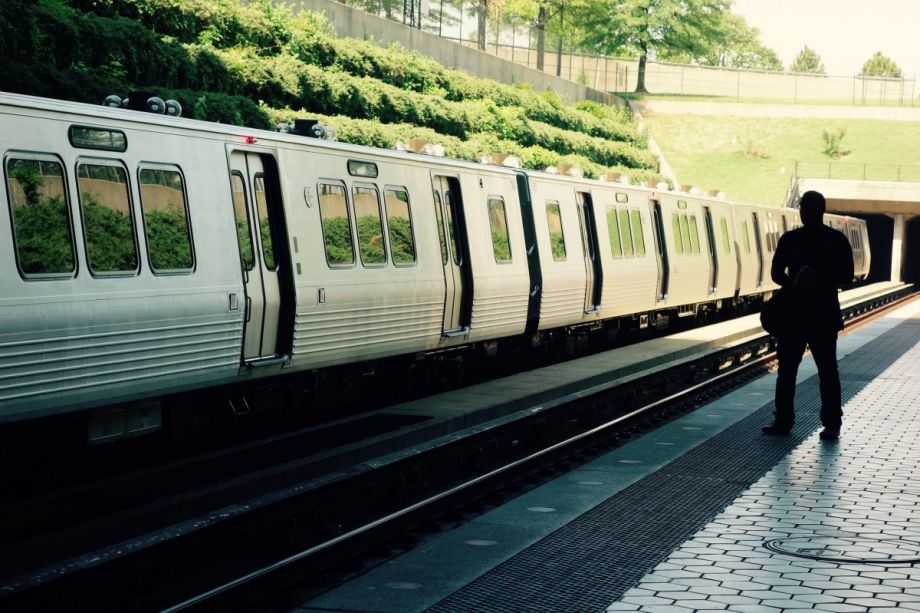
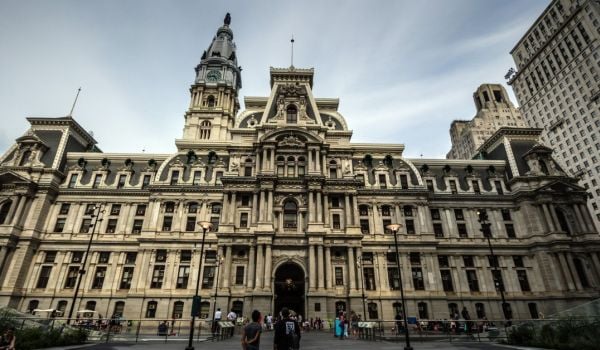

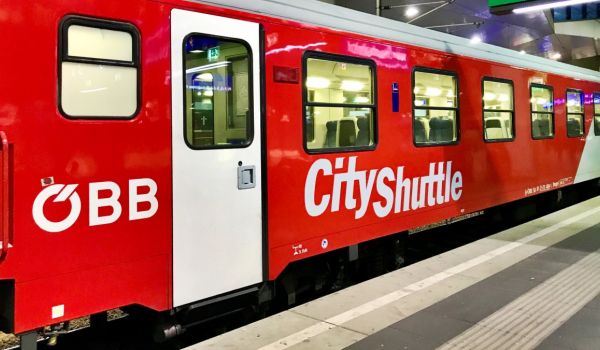

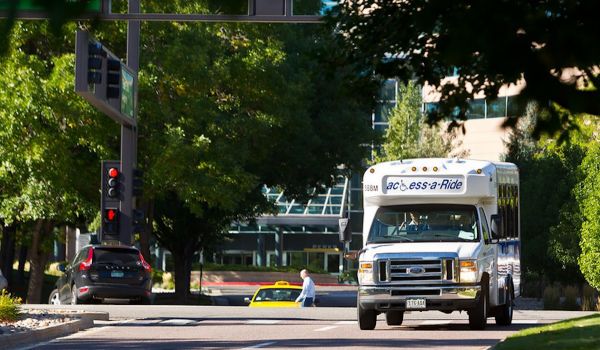
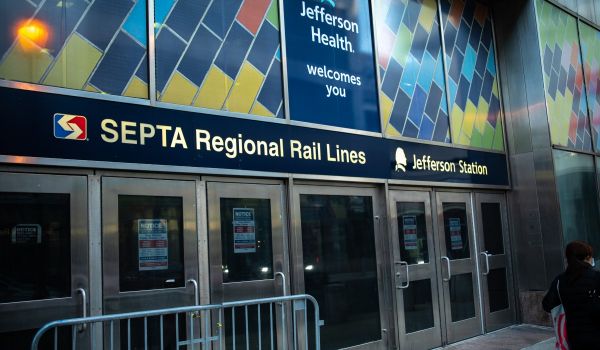
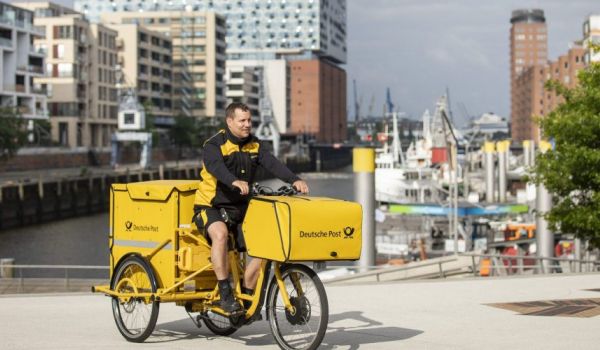
_600_350_80_s_c1.jpg)






